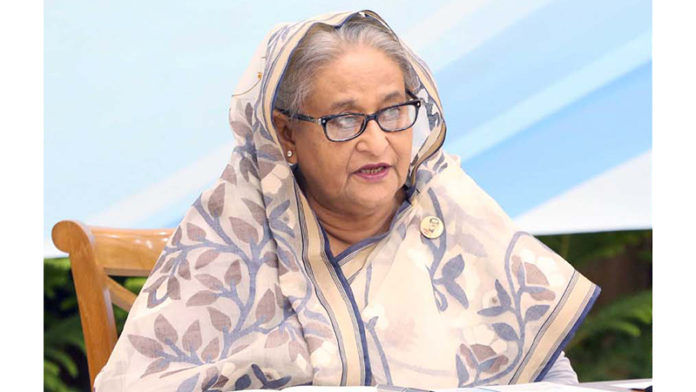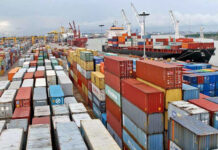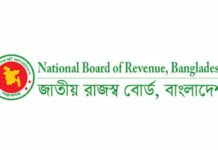Prime Minister Sheikh Hasina said that a reserve for purchasing food for only three months is enough. She said, ‘I think, if we have enough reserves to buy food for three months, that is enough. However, we have to reduce dependence on others for consumer goods and food products, production should be increased in our own country.’
The Prime Minister said this as the chief guest while addressing the inauguration ceremony of 24 technical training centres built in different upazilas of the country including ‘Bangabandhu Sheikh Mujib Centennial Technical Training Centre’ on Thursday (28 July). She joined the function organised by the Expatriate Welfare and Foreign Employment Ministry and Manpower, Employment and Training Bureau at Osmani Memorial Auditorium in the capital through video conferencing from Ganobhaban.
Emphasising exports to earn foreign exchange, the Prime Minister said, ‘In regards to earning foreign exchange, we need to pay more attention to earning foreign exchange which is not only dependent on remittances but export dependent. In order for our products to be exported abroad, we need to diversify our products and find new markets for our products. We will also take steps to earn foreign currency by producing goods which are in demand and exporting them.’
The Prime Minister said that we should always keep one thing in mind, we should reduce our dependency and make arrangements so that we can stand on our own feet. With the fertile land and population we have, we can do that. Not only production, food storage should be modernised and the food processing industry should also be developed extensively. By doing this, a market will be created for the people of the country, and we will be able to export abroad.
Regarding the Russia-Ukraine war, the Prime Minister said, ‘We have had to deal with COVID-19, and along with that, the Russia-Ukraine war started. As a result, the world economy is in recession. This war is pointless. As we can see, only those who make weapons are profiting in this war, and the lives of common people are being threatened. This war is not only a war but also brings sanctions with it. As a result of these sanctions, counter-sanctions, the whole world is in economic danger today.’
She said that developed countries are struggling and they are now worried about saving power, saving energy, and food security and because of that they are taking various steps. And then there are countries like ours, we have only embarked on the path of development. We are trying hard to reach a goal, and facing such an obstacle is very sad for us. Today, all countries have taken various initiatives to save energy. We are also following it.
Barrister Anisul Islam Mahmud, Chairman of the parliamentary standing committee of the concerned ministry, spoke as a special guest at the event presided over by Minister of Expatriates’ Welfare and Foreign Employment Imran Ahmed. Expatriate Welfare Secretary Dr. Ahmed Muniruch Salehin and Director General of BMET Md. Shahidul Alam spoke on the occasion. A documentary on the newly constructed TTCs was screened on the occasion.




